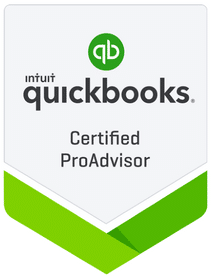- Patrick Roney
- (877) 503-8607
Follow Us :
Follow Us :
Proledge
November 20, 2010

Each year, in the Fall, Intuit releases a new version of QuickBooks for their Pro, Premier and Enterprise line-ups. We’re now onto QuickBooks 2011. Should you upgrade to the 2011 version and when?
In 2009, Intuit had a total revenue of $3.2 Billion. The sales of the QuickBooks software represented only 12% of that, but an enormous portion of Intuit’s other revenue is dependent on the health of their QuickBooks franchise: add-on applications, payroll, services for accountants, etc… QuickBooks is Intuit’s foundation and they put massive resources behind it to keep the brand “fresh”. Accordingly, there is quite a bit of innovation that gets into each new version of QuickBooks. However, QuickBooks is a mature product and there are only so many features that you can add to QuickBooks without running the risk of making it too complicated. QuickBooks’ core value proposition is that it is easy to use. Intuit doesn’t want to put this at risk. So it is fair to say that the rate of improvement from one version to another has dramatically decreased over the past few years. The improvements are on the margin and most new features are relevant only to the advanced users.
In other words, if you are using only half of QuickBooks’ features, you are very unlikely to need the new features of each new release. Don’t bother upgrading every year.
Intuit supports only three generations of QuickBooks, so, at a minimum, upgrade every 3 years. Since we’re on 2011, Intuit stopped supporting 2008 and older versions. It’s not the end of the world if you are still on one of these versions, but if you stumble on a bug, it won’t be fixed, and integration of several 3rd party application such as online banking, merchant services or payroll may end up not working properly anymore.
Yes, if you know of a new feature that you need. Check this page: http://quickbooks.intuit.com/pro/whats-new/ It gives a feature comparison from one version to the other from the 2008 version to the 2011 version. If you don’t need any of the new bells and whistles and you already are on 2009 or 2010, no need to upgrade.
Whenever Intuit launches new version of QuickBooks, it will have some bugs in it. It is unavoidable. The safe approach is therefore to wait a few months for the dust to settle and for the product to be completely stable. Some people recommend to wait until January. However, Intuit knows full well that a lot of people use this waiting strategy and to fight this, Intuit provides very attractive discounts if you buy QuickBooks early (in the Fall). So, here’s the trick: buy it now and install it later. Buy it now to get better pricing (and make Intuit happy), but then sit on it a few months before actually installing it on your PC. The version on your CD will still have the bugs, but as soon as you install the application, QuickBooks will automatically go online and download the bug fixes. You’ll start with a fresh and stable version of QuickBooks.


Fill out the form below to sign up to our Blog Newsletter and we’ll drop you a line when new articles come up.
Bookkeepers.
Professional. Affordable.
ProLedge is a bookkeeping services firm.
Copyright © 2024 All rights reserved.
Hello. Can we help you?